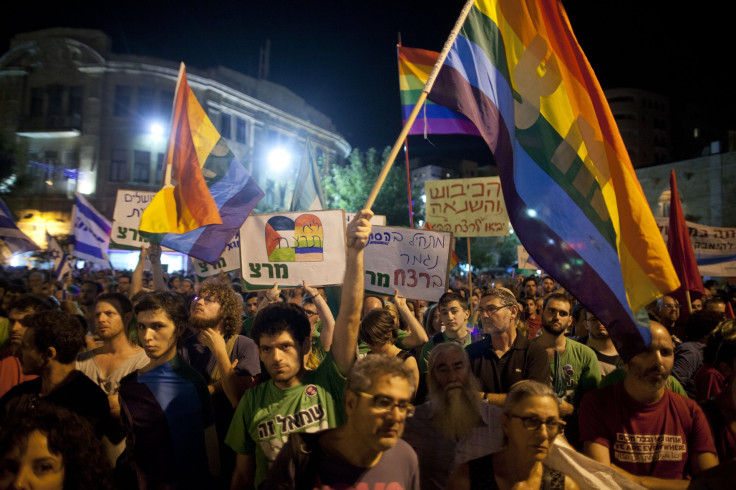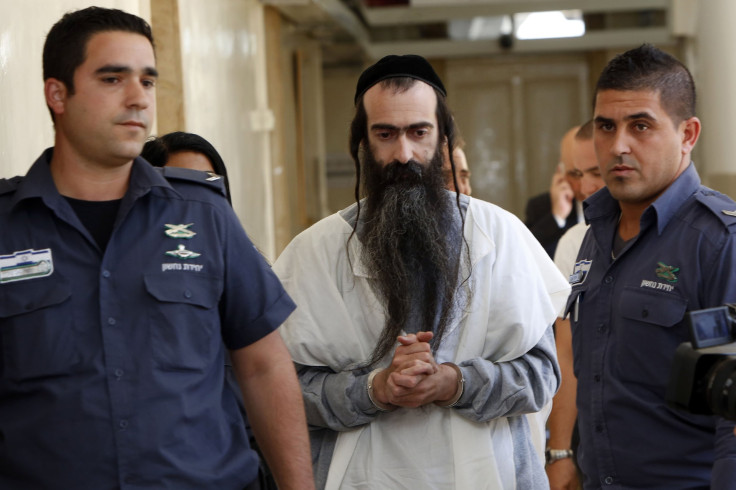Jerusalem's Gay Pride Parade Attack Underscores Tensions Between Israel's Anti-LGBT Religious Leaders And Secular Israelis

Shira Banki, an Israeli teenager who died Sunday from wounds sustained at Jerusalem's gay pride parade last week, was laid to rest Monday. The 16-year-old -- a supporter of Israel's gay community -- was one of six people stabbed Thursday by an ultra-Orthodox Jewish attacker, and her death prompted a call for the Israeli government to crack down on religious extremism.
For many in Israel, the attack on the parade seemed like an isolated incident, as it was harshly condemned by governmental and religious leaders across the political spectrum. But for members of Israel's gay community, the violence underscored just how intolerant some in Israel remain toward homosexuality, even as the country has billed itself a haven of gay rights in an otherwise unfriendly Middle East.
"Unfortunately, this is not an isolated incident," said Tom Canning, a spokesman for Jerusalem Open House for Pride and Tolerance, a community center providing services for LGBT people in Jerusalem. "If you look at Israeli society in general, it's very positive toward LGBT communities...but there are still hotbeds of hatred and of homophobia, and that's where this murder came from."
Canning said he and others in the gay community -- still in shock and trying to make sense of last week's senseless violence -- viewed the attack as symptomatic of the government turning a blind eye toward extremist religious rhetoric. LGBT people in Israel are regularly victims of discrimination, he said. "It can be violence, it can be rejection of services, it can be slurs on the street," he said.
Jerusalem is considered a holy city to the three Abrahamic religions -- Islam, Judaism and Christianity -- and it is from Jerusalem's religious sects that the most viciously anti-homosexual rhetoric has often emanated.
"There's a general sentiment, very mainstream in Israeli society, that the LGBT community in Jerusalem should keep their head down, shouldn't be visible and that the pride march is seen as a provocation against religious people," Canning said.
Israel maintains some of the most liberal laws toward homosexuality in the Middle East. The country ended its ban on same-sex relations in 1988 and introduced anti-discrimination legislation in 1992. Its military allows gay citizens to serve openly.
Yet in other ways, the law remains beholden to conservative factions in the country, especially in relation to marriage and divorce, gay rights activists said. The government does not recognize same-sex marriages performed in Israel and gay couples are restricted from adoption.
In conservative religious communities, homosexuality remains a taboo topic, and many continue to hold hostile views toward gays and lesbians. In the Torah, homosexuality is referred to as an "abomination."
A significant wedge exists between religious and secular communities in how they view gay rights. A poll conducted in 2013 found that among secular Israelis, 61 percent said they felt the LGBT community should be accepted, compared to only a quarter of religious Israelis.
Knowing that violence was a possibility, Israeli police had a strong presence at last Thursday's gay pride parade. In 2005, the very same attacker, identified as Yishai Schlissel, was arrested after stabbing three people at the parade, and since then, the parade has regularly been the target of protest and smaller scale attacks.
Activists blamed the violence on the freedom with which religious communities espouse anti-homosexual sentiment, and were skeptical the recent condemnations by political and religious leaders would lead to any substantive changes. They said the Israeli government needed to take threats against LGBT people more seriously, rather than pass off extremists as "crazies." Beyond that, they want the government to embrace some of the same human rights activists in other democratic countries have been calling for, including gay marriage.

"Now we have a government that is dominated by the right and religious parties, so I don't see anything changing in terms of law. It just won't happen with the current coalition," said Elizabeth Tsurkov, an Israeli human rights activist. "[But] I do think the LGBT community is now in a much more advanced stage in terms of our rights and recognition than 10 years ago when the previous stabbing happened," she said, noting the magnitude of the condemnations immediately following this attack.
A growing number of Israeli religious groups are starting to address same-sex preferences, and many are seeking to leave the door open to members of the gay community who want to maintain a religiously observant life. Tsurkov said over the last several years, more people have sought to reconcile their sexual preferences with religion, whereas in the past people regularly became secular after publicly coming out as gay.
Robert Saferstein, founder of Eighteen:22, a global think-tank of LGBT Jewish activists, said he believed change was looming. His organization takes its name from the verse on Leviticus that refers to homosexuality as an abomination, and is meant to open a discussion about LGBT rights across the Jewish diaspora.
He said Israel's Orthodox community has been lagging behind the Reform, Conservative and Reconstructionist movements -- all Jewish denominations generally considered more liberal and that tend to read the Bible less literally -- but was slowly starting to engage sexual identity more critically.
"There are conversations that are happening in the Orthodox world and in the Orthodox Jewish community that weren't possible even five years ago," he said. "We've seen incredible strides within parts of the Jewish communal world, including the Orthodox traditional community."
© Copyright IBTimes 2024. All rights reserved.






















